A while back, I made a point along the way of my psychedelic explorations to pen an opinion piece, postulating that there’s “no such thing as a bad trip” in the exaggerated media sense. Consider that a little sidecar to this article. While the “bad trip” media scare (e.g. people freaking out and injuring themselves while high) is greatly exaggerated, we’re here to talk about the all-too-real “bummer trip.” There are good highs and great highs, which also mean that there can be bad highs as well. Experiences on drugs where you just didn’t find it as enjoyable as you would expect given that, well, you’re taking drugs.
In my experience both on my own and noting others’, there are a few factors that can impact your high, regardless if you’re doing cannabis, shrooms, or even a few shots of your chosen libation. These may all seem bloody obvious to read now, in a blog, while you’re cold sober (presumably). But that’s the thing about getting high – it alters your perception. While you’re on the effects of a mind-altering substance, it may be harder for you to realize when something else is impacting your mental state. But you do notice your experience is lacking somehow, just can’t put your finger on it… later when you come down, you blame the drug for the “bunk trip.”
This is the kind of situation which psychonaut pioneers like Al Hubbard observed and subsequently advocated for psychedelics users to pay attention to their “set and setting.” You have to remember that you can experience delusional thinking on drugs, so checking in for these factors can be your tether to reality.
This seems to be more common in some users than others. It all comes back to individual physiology. So we’re addressing new users enjoying legalized substances in their area, as drug legalization sweeps North America like acid at a Grateful Dead concert. If you have tried a drug and thought your experience was off – here’s a list of possible measures to control for before you decide that you were reacting to just the drug.
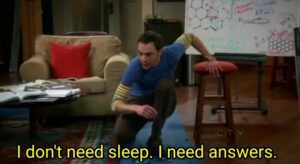
Lack of Sleep
If you asked what’s the #1 casualty of recreational substance use, it’s sleep, hands down. Leaving aside the stimulants and amphetamines, whose whole purpose is to keep you wound up. Most drugs keep you awake simply because – whee! – being high is fun! You certainly didn’t blow that $50 at the dispensary just to sleep the experience away, after all, so you’re motivated to stay up and enjoy it.
But there is no such thing as a mind-altering substance that doesn’t impact your sleep, in either quantity or quality. For example, even plain old alcohol will make me fall asleep fast, but it will also make me start awake a few hours later with absolutely no sense of having rested. Any substantial psychedelic trip brings with it the guarantee of a wakeful 24 hours. And while cannabinoids like CBD and CBN are taken isolated to help with sleep – and work great too – the more potent cannabinoids will keep you awake. You can easily stay up most of the night hitting dabs, for instance, being an intense enough high that you can will yourself awake on it. If you do go to bed with a full-on THC buzz, there is evidence that it can decrease your high-quality REM sleep.
Bottom line: Any time you’re thinking “I’m having a bad trip, this sucks,” the first thing you should check for is “am I just tired?” And if you want the best high, pick a time when you’re well-rested and alert already.
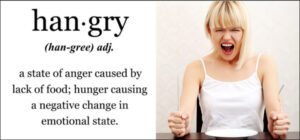
Hunger & Dehydration
It may sound daft, but even cold sober people can sometimes “forget to eat.” Not just people with appetite disorders, but any one of us caught up in a stressful shift at work fueled by coffee on an empty stomach. Along with being sleep suppressants, most drugs are appetite suppressants too. At least, it’s easier to ignore hunger pangs when you’re high. And yet when we do get hunger cravings on drugs, we say you’re “getting the munchies” – ignoring the fact that you would have eaten a full meal or two by now if you weren’t high. Likewise with dehydration, it’s easy to ignore your sense of thirst or make it worse by drinking sugary pops that don’t hydrate you enough, but then when we do notice that we’re thirsty, we blame the drug for giving us “cotton mouth.”
The way this plays into a bummer trip is when you’re conflicted between an urge to eat or drink and some other desire, such as not wanting to get up from your chair. That is a trivial dilemma under ordinary circumstances. But with a head-full of psychoactives, you’re left flung over the couch with a repeating loop of thoughts “I should get a drink, my mouth feels like sandpaper. But there’s no way I’m walking right now; I don’t even know if I can find the kitchen!” This is the part where a trip-sitter comes in handy. They can order take-out for you without you having to deal with any part of the transaction.
Bottom line: Have some water and snacks handy. Your body needs to replenish itself, even when you’re more concerned with the spirit realm than the physical at the moment. And of course, the best highs you will ever have are ones where you started out hydrated and well-fed.
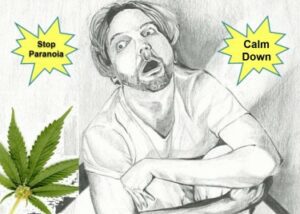
Side Effects
Of course, drugs have side effects. “But Pete,” you say, “this time we really CAN blame the drug, which caused the side effect.” Well, yes, but we can plan ahead when we know a drug has a side effect and try to work around it. For instance, psychedelic drugs (shrooms and hallucinogens) are famous for causing stomach upset. But you can prepare ahead of time and start after a full meal, to blunt the impact of the drug on your system, and have ginger ale on hand or whatever you find takes the edge off the nausea. Or, if cannabis is producing certain effects you’d rather not have, like cotton-mouth or paranoia, you might try switching to a different strain. There may be terpenes you have an allergic reaction to.
Bottom line: So the point here is to separate the issue by isolating different effects. Again, this may sound elementary, but we as a culture are still getting used to discussing the effects of these substances in clear ways. Now instead of “I’m never doing ayahuasca again” it can be “if I ever do it again, I’m going to see how I can avoid barfing my socks out so I can enjoy the trip.” If drugs tend to make you paranoid or anxious, maybe having a trip-sitter will help talk you through that part.
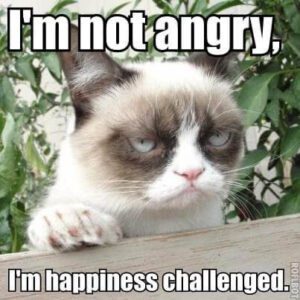
Bad Mood
Here is the reason why they say that you shouldn’t use drugs as a crutch. As a firm rule, I have always refrained from trying to fix my mood with chemicals. If I’m upset about something and smoke weed, I’ll still be upset but now stoned too. Even though it’s tempting to “drown your sorrows,” and even though people get into that habit because it works occasionally, it also backfires in the long run. Better to do whatever mental processing you need to do to clean your mental slate, then enjoy your drug session without the distraction. Besides, you are more likely to make mistakes while inebriated, and that can make a crisis situation worse.
Bottom line: Returning once again to that “set and setting,” you will get the most out of your drug session if you go into it without too much mental baggage. Drugs are at their best when they’re complimenting a good mood, not trying to fix a bad one. I’ll insert an extra-special caution against getting high while currently having a dispute, such as a fight with your significant other. Drugs will have you saying things you wish you could take back later – and we’ve all known that one druggy couple who seem to be constantly fighting, right?
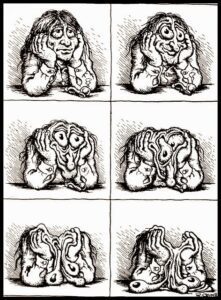
Taking Too Much
This is the most frequent negative experience encountered by new users. It’s especially common with edibles, because it’s easy to underestimate how potent an edible will be. Now, most of us, at least in our day-to-day, don’t necessarily want to get so wasted that we’re comatose. We’re looking for a good time that we can still function on. But each of us has a different physiology; one person’s microdose is another’s macrodose. Remember that all drugs can get unpleasant if dosed high enough. Cannabis can make you “green out,” too much of a psychedelic can be intense to the point of trauma, stimulants can send your blood pressure skyrocketing, etc.
Bottom line: If you tried a drug and did not like it, see if taking half that dose next time puts you more in your comfort zone. And never let ANYONE else tell you how much you should take or put you down for being a lightweight. Because all of us in the drug community know better than to apply frat-bro peer pressure, don’t we? Anyway, cut the dose, halve the effect, and find your sweet spot.
May All Your Trips Be Happy Ones!
Of course, if you decide drugs are not for you, then that’s what you have to live with. It’s true, not everybody likes being on drugs at all. Some people don’t like the mental brain fog or the way it disrupts their system. Some people have an aversion to certain drugs – I myself, for example, am as good as a dead man if I ever take amphetamines again. There’s nothing wrong with that.
Instead, this guide is mainly for the people who are trying out legalized products as an experiment, but aren’t too sure of themselves yet. We have an exciting new frontier ahead of us as the whole North American continent becomes fluent in discussing altered states of consciousness and how to navigate them beneficially. We will all have to learn together how to address mind-altering substances after these decades of sweeping them under the rug with prohibition. Give yourself time, research what you’re looking for, and most importantly, pace yourself at your own stride!
Readers, share your bummer trip stories and what you think caused them, here in our comments or in our alleged forum.


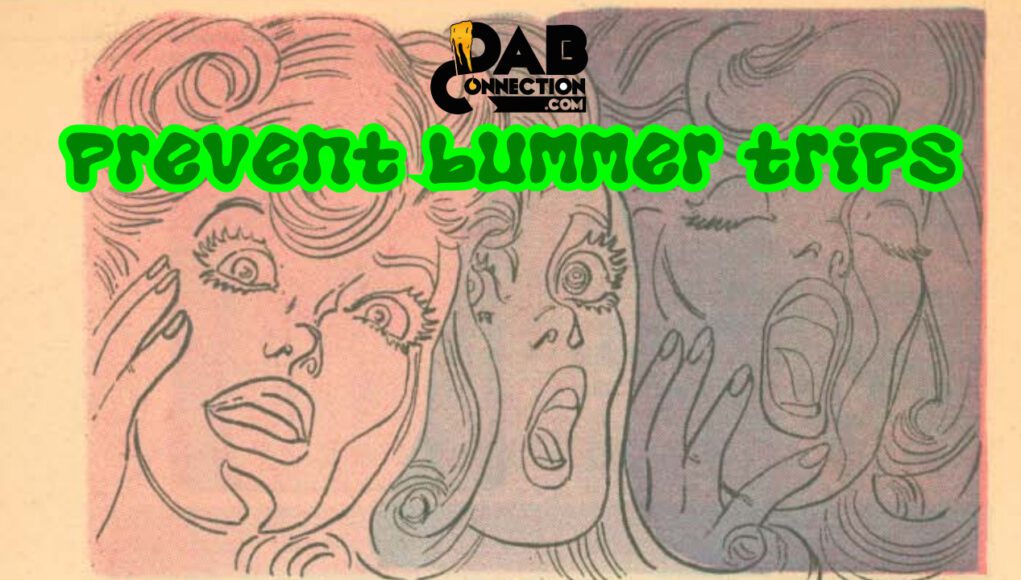
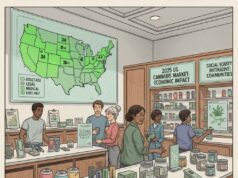
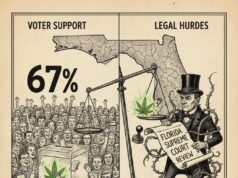
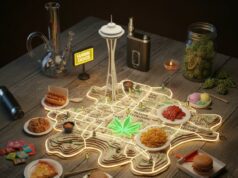
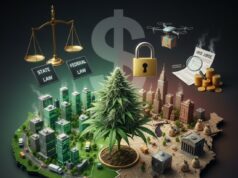
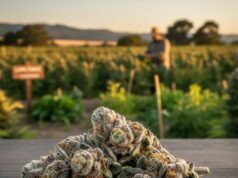
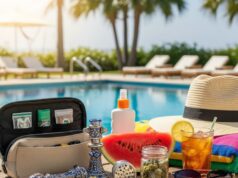

I’ve been exploring terpene-based products live terpenes recently, and I’m really enjoying the experience. The scents are in the chips, typical, and pleasant. They tot up a nice be a match for to my daily drill, dollop congeal the atmosphere and atmosphere. A great find to save anyone who appreciates savoury wellness tools.
I’ve been exploring terpene-based products [url=https://terpenewarehouse.com/products/cotton-candy-plus ]candy terpenes[/url] recently, and I’m really enjoying the experience. The scents are in the chips, real, and pleasant. They enlarge a discriminative caress to my daily drill, plateful fasten on the atmosphere and atmosphere. A large track down to save anyone who appreciates aromatic wellness tools.
I recently tried kush vape , and I’m absolutely impressed with the quality. The effects were smooth, calming, and exactly what I was hoping for. The miscellany of options also allowed me to find something skilful in the direction of both relaxing evenings and bountiful days. Absolutely advise for anyone seeking great results!
I recently tried [url=https://killakush.com/product-category/thca-flower/ ]thc a flower[/url] , and I’m really impressed with the quality. The effects were serene, calming, and faithfully what I was hoping for. The variety of options also allowed me to learn something made-to-order an eye to both relaxing evenings and productive days. Once advise proper for anyone seeking significant results!
[url=https://joyorganics.com/products/organic-cbd-salve ]best cbd salve[/url] purvey a discreet and enjoyable method for the sake experiencing the exacerbate’s effects. Close by in a all the way series of flavors, strengths, and blends, they make allowance to word-for-word dosing and manumit effects that incline to last longer. Scads users circle to these gummies for their calming and stress-reducing benefits. That said, it’s requisite to make use of them responsibly, as the onset of effects is typically slower than with methods like smoking or vaping. At all times augment dosage recommendations and affirm that their use is legal in your area in the past consuming or purchasing.